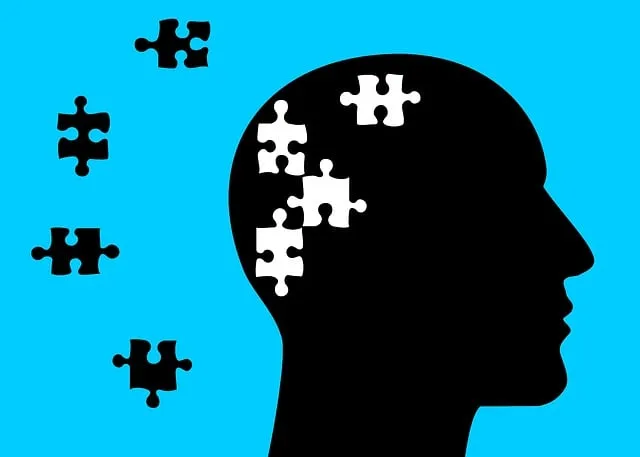Northglenn Kaiser Permanente behavioral health providers employ the RFM framework (Reliability, Functioning, Meaning) to build resilience and prevent burnout among their staff. This approach equips both patients and providers with tools for stress management, self-awareness, and emotional regulation through holistic practices like mindfulness and goal-setting sessions. The successful implementation of RFM programs leads to improved patient outcomes, reduced stigma, and a supportive community where individuals can effectively navigate challenges and enhance their overall mental well-being.
In today’s challenging landscape, enhancing patient care within Northglenn Kaiser Permanente’s behavioral health division requires innovative strategies. This article explores the powerful tool of RFM (Resilience, Flexibility, and Mastery) and its implementation through resilience-building exercises. We delve into how these practices can transform patient outcomes, improve engagement, and provide practical guidance for Northglenn Kaiser Permanente behavioral health providers. Discover successful evaluation methods and learn to overcome challenges to ensure long-term commitment to RFM integration.
- Understanding RFM and Its Relevance for Behavioral Health in Northglenn Kaiser Permanente
- The Role of Resilience-Building Exercises in Enhancing Patient Care
- Practical Implementation Strategies for Behavioral Health Providers
- Measuring Success: Evaluating the Impact of RFM Programs at Kaiser Permanente
- Overcoming Challenges and Ensuring Long-Term Engagement with RFM
Understanding RFM and Its Relevance for Behavioral Health in Northglenn Kaiser Permanente

At Northglenn Kaiser Permanente, behavioral health providers are increasingly recognizing the value of RFM—a powerful tool for enhancing resilience and mitigating challenges like burnout prevention and depression prevention. RFM stands for Reliability, Functioning, and Meaning, reflecting key aspects of an individual’s psychological well-being. By understanding these dimensions, healthcare professionals can tailor interventions to support trauma support services and foster a sense of purpose in their patients.
This framework is particularly relevant given the unique pressures faced by Northglenn Kaiser Permanente behavioral health providers. The demands of modern life, coupled with high patient loads, can lead to professional burnout. RFM exercises help address this by encouraging individuals to reflect on their strengths, cope effectively with stressors, and find deeper meaning in their lives. Such proactive measures are crucial for maintaining the well-being of both patients and healthcare providers within the Northglenn Kaiser Permanente community.
The Role of Resilience-Building Exercises in Enhancing Patient Care

Resilience-building exercises play a pivotal role in enhancing patient care, especially for individuals seeking support from Northglenn Kaiser Permanente’s behavioral health providers. These exercises are designed to empower patients with self-awareness and coping skills, enabling them to navigate life’s challenges more effectively. By integrating practices like mindfulness meditation and stress management techniques, patients can reduce anxiety and find relief from everyday pressures. This holistic approach not only improves mental well-being but also fosters a deeper sense of control and resilience, allowing individuals to face personal struggles with newfound strength.
The implementation of self-awareness exercises within the healthcare setting signifies a shift towards patient-centric care. It encourages individuals to delve into their emotional states, understand triggers, and develop adaptive coping strategies. As a result, patients become more equipped to manage symptoms, improve overall mental health, and maintain better quality of life. Through these resilience-building initiatives, Northglenn Kaiser Permanente behavioral health providers strive to create a supportive environment that nurtures growth, enhances recovery, and promotes long-lasting well-being for their patients.
Practical Implementation Strategies for Behavioral Health Providers

For Northglenn Kaiser Permanente behavioral health providers looking to integrate Resilient Factors Model (RFM) and resilience-building exercises into their practices, a practical approach is essential. Firstly, Self-Esteem Improvement should be a cornerstone of these strategies. Encouraging clients to engage in activities that challenge negative self-talk and promote positive thinking can significantly enhance their overall well-being. Behavioral health professionals can facilitate this through goal-setting sessions, where individuals identify and reframe limiting beliefs, fostering a sense of accomplishment and boosting self-confidence.
Additionally, implementing exercises focused on Self-Care Routine Development for Better Mental Health is vital. Educational workshops and interactive group sessions can teach clients various self-care techniques tailored to their unique needs. This might include mindfulness practices, stress management strategies, or creative outlets like journaling. By integrating these activities into a structured routine, Northglenn Kaiser Permanente behavioral health providers can empower individuals to take proactive measures for their mental health, thereby strengthening their resilience in daily life.
Measuring Success: Evaluating the Impact of RFM Programs at Kaiser Permanente

At Northglenn Kaiser Permanente, behavioral health providers have been utilizing Resilience, Flexibility, and Mastery (RFM) programs to foster a culture of resilience among their patients. These programs are designed to help individuals build inner strength, develop positive thinking patterns, and navigate life’s challenges more effectively. The success of RFM initiatives is evaluated through various metrics, including patient feedback, clinical outcomes, and the reduction of mental illness stigma within the community.
By measuring the impact of these programs, Kaiser Permanente aims to understand how RFM exercises contribute to improved well-being. Positive changes in areas such as stress management, emotional regulation, and coping strategies are observed, leading to better overall mental health. Additionally, Mental Illness Stigma Reduction Efforts have been enhanced, fostering a more inclusive environment where patients feel empowered to seek support without fear of judgment.
Overcoming Challenges and Ensuring Long-Term Engagement with RFM

Implementing RFM (Resilience, Flexibility, and Mindfulness) exercises within Northglenn Kaiser Permanente’s behavioral health services presents a unique opportunity to empower individuals with lasting coping strategies. These exercises aim to strengthen mental resilience, enabling folks to navigate life’s challenges more effectively. Behavioral health providers play a pivotal role in guiding patients through this process, offering tailored support for their specific needs.
To ensure long-term engagement and impact, integrating RFM into existing services requires strategic planning. This involves introducing mindfulness practices that cater to diverse populations, considering cultural sensitivity and accessibility. For instance, Northglenn Kaiser Permanente’s Community Outreach Program can facilitate group sessions, fostering connections through shared experiences. Public Awareness Campaigns Development can also contribute by disseminating information on the benefits of mood management techniques, encouraging ongoing participation in RFM initiatives.
The implementation of Resiliency, Flexibility, and Mastery (RFM) exercises in Northglenn Kaiser Permanente’s behavioral health services has shown significant promise in enhancing patient care. These resilience-building programs empower individuals to navigate life’s challenges more effectively, fostering a sense of control and well-being. For behavioral health providers, adopting RFM strategies offers a practical approach to improve patient outcomes and overall satisfaction. By measuring the impact through careful evaluation, providers can ensure these programs remain engaging and relevant over time, ultimately benefiting the Northglenn Kaiser Permanente community.





